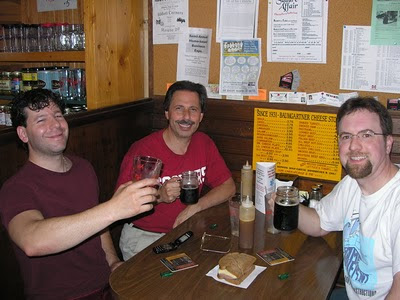I dreamt this dream on March 13th, 2010. In it I witnessed the effects of a ‘Reality Game’ generated (supposedly) by a computer programmed by humans to arrange hologram ‘reality events’ in random, complex patterns such that any real-life decisions which the human players made actually spurred the computer to fire back seemingly unpredictable phenomena. I believe the dream symbolises the direction which American and industrial Asian societies in particular are tracking. As far as the human players were concerned, the point seemed to be the desire to be caught up in something which seemed (most excitingly) out of their control, and which also gave them an air of heroism (‘purpose’) devoid of responsibility and social accountability. I won’t claim that the human players lived out their roles devoid of any sense of personal or social ethics, but the charge which people got out of gaming (an experimental stage) meant that many of the players would commit heinous acts out of sheer boredom, curiosity, or a desire to mess with the computer. People seemed to delight in the fun of guessing “Is this real or isn’t this?” If the gamers commited ‘bold acts’, it was only because they naively assumed a computer generated life couldn’t lead to REAL death, love, loss, disappointment, grief or pain. In other words, it allowed the participants to avoid all the very things they most needed to come to terms with in their plastic lives, and spelled out a perfect chess-board of self-deception. Within this frame of deception, I saw keenly the presence of demons, delighting in the folly and frailty of the human inventers.
Being keenly critical of such things in my own waking world, I was even more critical of this particular ‘game’ in the context of my dream – partly because it worked out to my own peril and isolation and, frankly, angered me to the point of driving me to use a spiritual exorcism to combat the series of events interplaying between human and computer. What I found most void and vapid about the game was its clear role in society as a *surrogate* ritual – a sham counterfeit to stand in the place of the many rituals of life, death, love, passage, voyage, work, clan, reunion, parting (etc) which pre-modern societies enact as extensions of a single integrative world-view.
In my dream, the contents of the game played out in a perfect pastiche of my parent’s and Oregon sister’s house. The players did not primarily consist of my family members – rather I sensed that my family members were suffering from the damnable trip the players were getting out of playing their game.
In the perception of the participants, ‘virtual’ objects and dangers would seem so real that one could no longer distinguish between real and virtual. Though I wasn’t a willing participant, I realised that I couldn’t ignore or escape the plot of this game.
My first face-off with the game was with a creature I did not know was real or virtual. A huge swooping venom-green serpent coiled through the air straight at me. I dodged to one side – it passed me by. As the game developed, I noticed that the participants became increasingly uneasy; it was a relief actually. Their healthy fear seemed to me a good sign!
And yet they weren’t near afraid enough (one is reminded of those who graspingly took Sauron’s gift-rings). I suspected that the humans had not only used the computers to create ‘bad art’ (trivial, reality-shunning, nature-hating), but that actual supernatural forces were at work to toy with the Materialists who’d created the game. When a ‘virtual’ suicide hanging occurred in the house attic and players advised me to take no notice (“It’s not real!”), I became even more convinced they were victims of moral delusion: they themselves might soon be dangling from the ends of ropes. I toyed with the idea of camping out in this attic – because I guessed any place the players were so keen to avoid had to be of central importance. Yet I was jittery, uneasy. I was partly unsure myself what was going on.
I went outside. I walked along a long dark beach. I noticed that shapes and shadows eavesdropped on my peripheral vision. I hurried back indoors. By this time the game seemed like no game at all. It was more like being trapped in some version of _The Exorcist_. I went to the top level of my parents’ house – to the room in which my sister and I had grown up. I noticed that some bunched bundled shape was shooting underneath all the blankets, carpets and curtains. The shapes then shifted into creatures. Even the house cat (was it the house cat?) changed its form. I began speaking out in a rhythmic voice, chanting, but couldn’t catch my breath to make audible sound. Once I gained strength, I resonated with power and banished the apparitions or forms from the household through intercessory prayers and petitions.
Once all the ‘excitement’ had ended, my family and I went back to the social rituals and dramas of our real lives with a vengeance – and life was good, not a dull or meaningless moment! The Mundane was full of Art and Narrative and Wonder. There was no need to add in a mind-blurring game to replace the ritual of a communal meal or bedtime story or lover’s walk. The grid and embroidery of our lives was undergirded by our faith that everything in the world and through time hung together in one piece. No one seemed to worry about techniques and proper results as much as becoming a family again. In place of robots, we got our human beings back.




































I've listened to this clip of a BBC interview of John Ronald Reuel Tolkien about seven times today, mostly to take in the cadence and music of his speech, which I find as compelling as Middle-earth itself. But I consider Tolkien's grasp of the cosmic refreshingly...rooted. The interviewer is so narrow and unidimensional in most of his queries, trying to peg down and reduce Middle-earth to author-sourced trivia. Tolkien easily defies, outwits, evades him. The man simply sees longeval and further, was not born in our media-box.